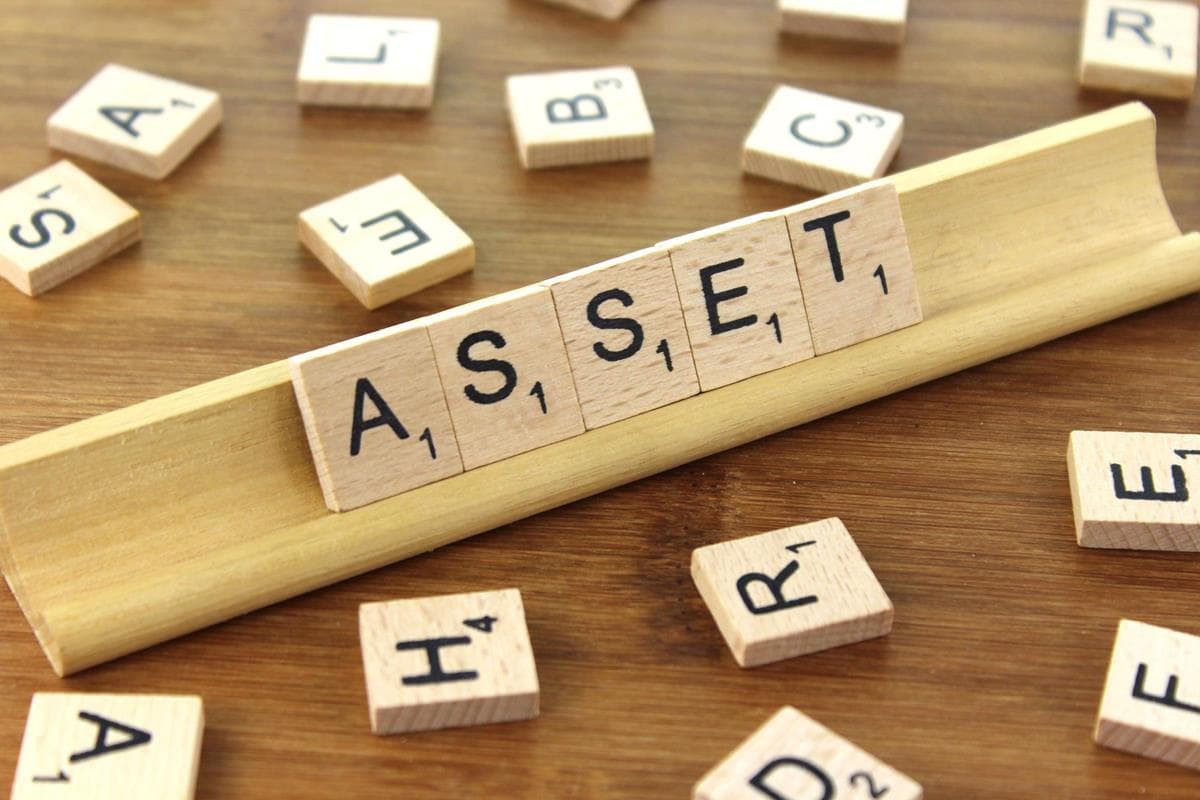-
09Nov2018
10 Most Commonly Asked Questions During Tax Season
The vast majority of individual taxpayers in Australia complete and lodge their income tax returns each year between 1 July and 31 October.
In the world of tax and accounting, this four month period is often referred to as tax season.
While most taxpayers who lodge through registered tax agents have deadlines that stretch well beyond 31 October each year, tax season and the days leading up to 31 October are an intensely busy time for the Affinitas Accounting tax team.
We get to welcome new clients and catch up with many of our once-per-year regulars.
Whether it’s via email or face-to-face, we get to deal with clients’ tax situations and answer questions and queries related to their income and expenses.
A poll of the Affinitas tax team produced the following list of 10 most commonly asked questions during the 2018 tax season.

These questions and our responses are summarised below.
-
Do I need to come into the office for my appointment?
No. Many of our clients from all over Australia and the world make use of our email service to prepare, check and lodge their returns.
-
I have had a phone call telling me I owe money to the ATO and I will be jailed if I don’t pay.
Every year unscrupulous people try to cash in on tax season by running these types of scams. If you are our client and you have a tax debt we will know about it. So just hang up the phone and call us to check what you are being told.
-
Why do I need to pay PAYG instalments?
While it is always much more exciting to receive refunds, some people lodge a tax return which results in a tax bill. This could be for a number of reasons – high bank interest, capital gains or other forms of untaxed income. If this happens, the ATO will assume you are going to continue to receive these tax bills and ask you to start prepaying towards next years bill. This is called a PAYG instalment.
-
Why do my PAYG instalments keep changing, I thought we had sorted this out?
Your PAYG instalment is calculated by the ATO based on the information in your most recently lodged tax return. Each time you lodge a new tax return, the ATO resets and re-calculates the amount. If you think it is excessive based on your current circumstances, then we can always amend this figure as long as we make a reasonable attempt to be accurate.
-
Can I pay my debt off with the ATO?
In most cases the answer is yes, provided you have a good record with your tax lodgements and no previous bad debts with the ATO. Normally, the ATO will allow you to pay off a debt over periods of up to 12 months.
-
What home office expenses can I claim?
It depends – that is the short answer. There are two broad categories of home office expenses . These are referred to as occupation expenses and running expenses. It depends on whether your are running a business from home or simply using your home to occasionally do some of your paid employment work. It is worth having a more detailed chat with us if you believe you may have a claim in this area.
-
Do I have to declare and pay tax my overseas rental property?
Generally speaking yes, unless you hold a temporary resident visa. Holders of temporary resident visas who have overseas rental properties need to declare the income earned from these properties, but will not need to pay tax on them.
-
Do I need to declare capital gains if they are under $10,000?
Yes, unless the capital gain is for what is classified as a personal use asset. There have been a lot of questions in this area related to cryptocurrency gains. In most cases, a gain on buying and selling a cryptocurrency is going to be considered a capital gain even if the amount is less than $10,000.
One of the most common misconceptions in relation to how tax deductions work in Australia. A refund reduces your taxable income, but ultimately the tax you get back (or save) is related to your tax bracket. For example, if you are in the 32.5% tax bracket, your $1200 deduction will provide a tax benefit of $390. This $390 will either be added to your refund or reduce any tax you have to pay.
-
Why can’t I claim that? My friend does?
Once again a very common question. Australia operates a self assessment tax system and under this system many self-preparers can misinterpret the rules relating to what is an allowable deduction. It’s only if and when they are audited that the ATO will disallow the claims. Our job as qualified professionals and registered tax agents is to do our best to ensure your tax lodgement is correct each and every year according to the tax laws of Australia.
If you think self-preparing sounds more lucrative as far as refunds are concerned, ask anyone who has been subjected to an ATO audit. They are time consuming, stressful and often result in the taxpayer having to repay many thousands of dollars worth of refunds, plus fines and penalties. Using a registered tax agent does not guarantee you will not be audited, but it should mean that the process will not be as time consuming or expensive. Options like buying tax deductible audit insurance also can provide peace of mind that our fees will be covered if we need to help you through a tax audit process.
Has that helped?
We hope so!
If you have any more questions, don’t hesitate to contact the Affinitas team. You can also keep up to date with us on Facebook and LinkedIn for more tax and accounting tips.

-
-
02Nov2018
More On Building A Better Budget
Our blog on How To Avoid The Budget Blues attracted a lot of interest.
This is an encouraging response. It’s obvious that many people realise just how important completing – and monitoring – a budget is as part of an overall business and financial plan.
For those who are about to tackle or revisit their budgets, the following are some further tips on how to get your numbers as accurate as possible and, most importantly, how to best use those numbers.

Brad expands on his budgeting advice from last week.
Sources of Information
Traditionally, you would be digging into the filing cabinet and pulling out copies of your most recent bills and pay slips.
However, today’s online world offers many alternatives. Your online bank and/or credit card statements will provide most of the information on income and expenses that you need.
For businesses, a copy of last year’s profit and loss statement can be a handy start. It will give you your sources of income and your regular expense categories.
Many ledger software programs nowadays also will break down your results on a month-by-month basis. Very few businesses earn income and incur expenses in the same amounts every month.
This month-by month breakdown can be important to highlight the peaks and troughs that you may experience throughout the year. For example, if you are in the business of selling Christmas decorations, you can expect to have strong sales figures in November/December and weaker trading in January/February.
In relation to your expenses, you may have many annual renewals due in January each year or just prior to 30 June. This knowledge helps you to plan your cashflow.
One-off Expenses
In both your personal or business situation, there are certain expenses that arrive every few years rather than every month or year. These are generally larger expense items – like painting the house, buying a car, replacing household whitegoods or updating the computer system. It could even be funding that two month dream holiday.
These items are often referred to as one-off capital costs.
Once you’ve got a handle on tracking and controlling your monthly and yearly expenses, you should put your mind to setting some dollars aside to cover these longer term contingencies.
Tracking & Controlling
Once you have set your budget, you need to track your actuals against the budget. This can be done via computer programs, which most businesses use.
There also is personal budgeting software available, but even just sitting down and manually looking at your bank balances and what you’ve earned and what you have spent – then projecting ahead to the next month can be a powerful way to keep yourself from heading off the rails.
Set aside time in your diary to update and monitor your budget numbers. If it is not in your diary there is a big chance that it will not get done.
Get Bank Accounts Working For You
Beware working from just one bank account. Very few can get control with all money going in and out of one account.
Many individuals and couples find a three bank account system useful. One bank account for weekly housekeeping/spending, one for monthly bills and a third for longer term savings/debt reduction.
If you calculate and transfer regular amounts into these accounts each pay cycle, you should have better control. Or, it should highlight very quickly whether you have underestimated your expenses in any of these areas.
HINT: Only have a debit card for your weekly spending account. Set up direct debits for your monthly bills and do one-off transfers for annual expenses. This will help you avoid the temptation of dipping into the wrong account.
Similarly, most successful businesses run multiple bank accounts. A general working account and other subsidiary accounts to save for tax/GST/PAYG; staff holiday pay, yearly expenses and capital replacements.
Business Budget Checklists Available
More business budgeting help is available by downloading our free business budget checklist. Read our article from last week for a personal and family budget.
We also have some industry specific checklists if you’re a tradie or a medical professional. Watch this space for more industry specific budgets, or use the general business template above.

-
25Oct2018
How To Avoid The Budget Blues
A budget is the basic building block of every financial plan.
Whether you are a business, individual employee, investor or a family – you need to now how much income you earn, plus the expenses and other priorities that need to be covered.
Incomings that exceed outgoings provide surplus cash for saving or reducing debt.
Outgoings that exceed incomings are a recipe for increased debt, plus associated financial and emotional stress.
Budgets do not need to be complicated and most of the information you need about your income and expenses is available on line.
Even so, it is often very difficult to get people to complete and then monitor a budget.
Helping prepare and monitor budgets during the past 30 years has provided me with some insights into the misconceptions and areas where aspiring budgeters can get confused, stuck or discouraged during the process.
Hopefully, the following can help you achieve a positive budget outcome.
- A budget is not about your accountant or financial planner passing judgement or telling you what you should spend. It’s a tool to allow YOU to make decisions about your spending priorities.
- Be honest about your starting position and spending habits. Even if things don’t balance now it’s better to start with reality and improve from there.
- Partners (business and personal) must work together as a team. Don’t make budgeting about judging each other. If you turn it into a battle, it is doomed to fail.
- Realise that you will not agree on everything – either the actual priorities or what amounts to allocate to each item. Try to find a compromise – but if any particular item is causing a roadblock, park it, move on and revisit later.
- To work, a budget needs to include your set (known) expenses, plus allow for discretionary expenses – entertainment, holidays, presents, hobbies, etc.
- I believe, even in a tight budget, that each partner should be allocated some amount of money each week (pocket-money/discretionary spending) for which they do not have to account.
- Budgets will never be perfect. You have to commit to them and get as close as you can – Progress, Not Perfection, is the key.
- Couples and business partners, in particular, need to commit to tracking your progress each month at an allotted time. Pick something regular — like the third week of every month — and allocate a few hours during that week to reviewing what you have in the bank, what bills you have paid and plan for what’s coming up.
- You need to be patient and give it time to work. The first few months are often a struggle – especially if you are paying off debt and do not have too much in the way of savings.
- Good budget habits are lifetime habits. There will never be a time in your life where you have so much money that you don’t need a budget.
- Once you have the numbers you need there are a number of different ways of controlling and monitoring your spending. It’s about finding the combo that is right for you.
Preparing a budget for a business needs a little more customising as each business is different. Next week we’ll go into a bit more detail on how to prepare a budget for your business and give you a checklist to help you get started.
To get started on your journey towards budget success, download our free personal or family budget template by clicking through here.
-
12Oct2018
Take Financial Stock Before Cancelling Policies
Comment by Brad Peters BA, MBA, FCPA (FPS)
Senior Adviser and Director – Affinitas Financial Planning
The recent Haynes Royal Commission is to be commended for highlighting some concerning things that have been occurring in the banking, financial planning and insurance industries.
But in the midst of all the negative reports, try not to lose sight of the fact that that there are many extremely ethical people working in these industries who do strive every day to work in the best interests of their clients.
When acting in the Best Interests of Clients was enshrined in legislation via the FOFA reforms, my reaction was to shake my head in wonder.
In my opinion, working in the best interests of clients should be the first concern you have with each and every client. Just like a doctor’s first concern is to Do No Harm.
Unfortunately, history has proven that not all doctors adhere to the Hippocratic Oath. But that does not mean the entire medical industry is corrupt.
Similarly, a vast majority of financial planners build their reputations and businesses by putting financial plans in place that are tailored to suit the needs of each client. These plans help protect their families and achieve their financial goals.
Successful financial planners make money. But so do successful doctors, lawyers, accountants, plumbers and carpenters.
Making money is nothing to be ashamed of in a western society. But making money via deceptive means or for services not provided was what the Royal Commission highlighted.
The evidence given before the commission and the subsequent media reports on the issues have been a wake up call for many to check their own policies and the associated costs.
However, probably the most worrying trend is that some people are deciding to cancel superannuation and insurance policies based on nothing more than these negative news reports.
For example, there have been quite a few media stories about insurance companies not paying claims. However, there are thousands of successful claims made every week.
In our practice, we look after about 400 clients with insurance policies. In the past 18 months, there has been more than $3 million in death benefits, $2 million in trauma/crisis insurance and many hundreds of thousands of dollars of income protection payments made to individuals.
These payments have helped these people support themselves and their families at a times when the injury (or worse) of a member of the family could have resulted in real financial stress.
No one enjoys paying insurance premiums. But there is no bigger advocate for the value of insurance then someone who has made a successful claim – or someone who has realised too late that they should have had insurance cover in place.
Before cancelling insurances, make sure you seek out someone for a professional conversation. Make sure you understand what you have in place, what you need and what you would be losing if you cancel your policies.
Similarly, if you believe your superannuation policy might need to change. Make sure you take the time to seek advice and make an informed decision about what might be the right policy for you.
The cost of running a superannuation fund is one major point to consider. But so is how it fits into your overall financial plan, the type of investor you are and the types of investments that interest you.
And if you feel you need the services of a financial planner, then take some time to find the type of person/practice that is right for you.
Recommendations from family/friends, Google reviews, Facebook and websites will provide you with a lot of information to help you make a decision.
Remember, a Royal Commission and journalists can highlight the problems in an industry, they just won’t be there to help you make an insurance claim. Nor will they help you reach your retirement goals and put your pension in place.
The right financial planner will help you do all this and more.
To get in touch with the Affinitas team to discuss your financial situation, simply book an appointment.
-
28Sep2018
Can I Claim Travel Tax Deductions For A Holiday?
There is often a lot of confusion surrounding travel costs and whether or not they are deductible on a tax return.
Some clients believe a particular form of travel is deductible when it is not allowable. Others do not realise that they have travel expenses that could be claimed.
There are many twists and turns in the travel expenses area, but the following are some of the Do’s and Don’ts that can help you decide if your travel expenses may be claimable.

DO – know your base of work or employment.
Travel to and from this base is not claimable. The ATO makes no distinction whether you have to travel five stations on the train or take two plane rides to reach your base of work. This is considered going to and from work and is not claimable.
DON’T – forget that once you are at your place of work, that any costs of travelling from this base for work purposes could be tax deductible.
This could include work site visits, client meetings, off-site training courses or even trips to the airport to catch a flight for work purposes.
DO – keep good records of km travelled in your motor vehicle, tolls, parking, or other fares and make sure the dates on the receipts can be matched back to a diarised work event.
DON’T – assume if you travel and stay overnight for work purposes that all expenses related to that trip are automatically 100% claimable.
There could be portions of things like your meals and other incidentals that would be considered private in nature and need to be apportioned.
DO – keep a detailed diary if your work related travel extends for more than six nights.
DON’T – make the mistake of thinking that a private holiday that has only a vague connection with your work is going to be claimable.
For example, if you are in the airline industry, a holiday trip to Seattle is not claimable just because you decide to tour the Boeing factory. However, if you get the opportunity to do some training at the Boeing factory that is connected with your work and you use your holidays and private funds to do this, then this is much more likely to be considered a tax deductible expenses.
DO – be cautious about assuming that carrying any sort of tools in your motor vehicle is an automatic green light that makes all your travel deductible.
There are a number of conditions that need to be met before this type of travel is claimable.
DON’T – expect your accountant to just make the travel the same every year.
It may be similar every year, but it always needs to be justified against your diaries and/or records.
DO – keep records of any travel related to study courses that are connected with your work.
This travel is likely to be claimable.
DON’T – forget the Golden Rule of tax deductions.
If you are not sure whether something is deductible, keep the receipts and other records and discuss this with your accountant.
Further information on travel claims and the associated records is available on our annual tax checklist. To obtain a copy of our logbook template, click through here.


-
25Sep2018
$20, 000 Instant Asset Write-Off Extended
The popular $20, 000 Instant Asset Write-Off has officially been extended until June 30, 2019.

If you’re an Australian small business turning over less than $10 million, you’ve been given another 12 months to take advantage of the scheme.
The Government states that the extra 12 months of the scheme will “improve cash flow for small businesses, providing a boost to small business activity and investment for another year.”
The program has seen a few different iterations and has been fighting Federal approval every year since its introduction in 2015.
Many small businesses — including many of you — love the scheme. Last year, the average write-off increased from $4, 000 to $9, 000.
As a reminder, the scheme allows small businesses to claim immediate deductions for asset purchases up to $20, 000. For more information on the scheme, visit our blog.


-
10Sep2018
Is Your Contractor Really A Contractor?
Just saying someone is working for you as a contractor, even if both parties agree, is not enough to prove this legal relationship.
Learn the difference between a contractor and an employee with this guide to the seven contractor warning signs.
There are complex rules surrounding whether a worker is an employee or independent contractor. Getting your assessment wrong can be extremely costly.
An independent contractor is a worker who is responsible for delivering a certain result, and he or she decides how to achieve that result. The level of control (exercised by the contractor) is what distinguishes a contractor from an employee.
Employees, however, are workers who operate under your instructions. You tell them what to do, how to do it and when to do it.
Experts in this area of employment law, often talk about the following seven warning signs that your contractor may be considered an employee.

These seven warning signs are:
1. You define the work hours
Generally, independent contractors do the job as they see fit. They set their own hours and work how and when they want. And they get paid by the project – never on an hourly basis.
2. You provide equipment or supplies
Independent contractors are expected to supply their own tools, equipment and supplies. As independent professionals, they should be expected to supply any and all tools necessary to complete the project they have been contracted to complete.
3. An indefinite relationship
The more permanent, open ended or long-term the relationship, the more likely the worker will be considered an employee. Remember, contractors are engaged on a temporary basis, usually to complete to a specific project.
4. No invoices
The contractor should be treated as a vendor under accounts payable. The contractor should provide you with invoices which include a valid ABN and, if applicable, a registered business name. Payment cheques should be written to that business name or a deposited in the business bank account.
5. Contractor only works for you
Independent contractors typically work with multiple clients. Contractor status is more apparent if the worker is servicing other customers at the same time he or she is handling your project.
6. No contract in place
You should always have a signed agreement in place with each contractor. It should be legally drafted and called “Independent Contractor Agreement” so there’s no question about the intent of the relationship. The agreement should, at the very least specify how much you are going to pay for the project and under what terms.
7. Performing core business services
Ideally, contractors should provide supplemental services but not the core services of your business. If your business is plumbing and your contractors are laying plumbing pipes, it could be considered an employee relationship. If, however, your contractors are supplying machines and digging ditches in which to lay the plumbing pipes, then it is more likely be considered a true contract arrangement.
If you are unsure of the status of your contractors, discuss with your accountant. If necessary, get some advice from an appropriately qualified employment lawyer.
For more help with determining whether you have contractors or employees, call us on 07 3510 1500, email or reach us on Messenger below.


-
07Sep2018
The Real Cost Of Owning Your Rental Property
Get the real cost lowdown on your rental property with this guide from Affinitas’ resident finance expert Tanya.
The long term goal of every investment asset should be to return a profit over an appropriate time frame. In the case of property, because of the high transaction costs to enter and exit the investment, the time frame should be at least 10 to 15 years.
Over time, a successful real estate investment should show growth in its income stream (rents), plus the actual capital value (sale price) should increase at a rate above annual average inflation.
Many people decide to buy investment property while still working, with the long term goal of using either the capital sale profit, or the rents, to at least part fund their retirement. The long term strategy to pay off any associated debt is also important to consider.
How much a property should appreciate over 10-plus years can be the subject of debate.
It is often suggested that a reasonable goal would be somewhere between four and seven percent above inflation. If average inflation is 3 per cent, then you would be hoping for long term capital growth of between 7% and 10%. These increases are however seldom linear and consistent. There can be quite a few peaks and troughs you need to contend with along the way.
Rents and property values generally grow, sometimes quickly and significantly, but they will also plateau at times, and can even decrease, depending on supply and demand and other broader economic factors.
In the times when the property market is not performing and your belief in the investment might be wavering, it can help to know the REAL cost of holding that property.
A real cost calculation highlights not only the obvious incomes and outgoings, but also factors in the tax benefits you receive when your property is making a loss that is recorded on your tax return.
This is commonly referred to as negative gearing.

Know the real cost of owning your rental property.
This week, Deb spoke with clients who were feeling a bit frustrated about how much their rental property was costing them . They weren’t sure that keeping it was the right thing to do. The interest expense they paid monthly — and the quarterly bills that seemed to roll around so fast — were front of mind for them and felt like a drain.
Deb used information gathered to prepare their tax return and unpack it to show them the real cost of owning their rental property:
After tax benefits they were receiving $42 per week — a lot more affordable than it seemed when they didn’t have the full picture.
They also met with me to review their loans and were able to negotiate a lower interest rate and use the interest savings to start paying down the principal on the loans. This helped them build equity in the property faster.
Adding in the tax benefits and maximising their finance structure left them a lot more comfortable about the long term prospects of their investment.
Most rental property owners, especially in the early years, see the money they pay out on a monthly basis but only receive the tax benefit in a lump sum when they complete their tax returns.
For those on tight budgets, there is a way to receive that tax benefit throughout the year in the form of less tax from your weekly or fortnightly income. This is achieved via lodging an annual PAYG variation with the ATO.
After analysing the cost of holding your rental property investment, you may still decide that it is not for you – but at least you will be making the decision based on all the available facts.
For help analysing the real cost of your investment property, to have your finance reviewed, or to discuss whether you could benefit from a PAYG variation, call us on 07 3510 1500, email us at or reach us on Messenger below.

-
31Aug2018
Why Isn’t My Tax Return Equal To The Deductions I Claimed?
Why Don’t I Get Back Dollar for Dollar?
Every year, we field heaps of questions from new and returning clients about their tax returns. One of the most common each tax season is— why don’t the tax deductions I claim equal the refund I get?
Turns out, the answer is simple: tax deductions bring down your overall taxable income.
Based on your income, you’ll fall into various tax brackets that determine your individual tax rate. You pay tax on this income based on this tax rate and it’s that same principle for deductions. This means you can claim a deduction and, in return, get back your tax rate percentage of that deduction. For example, if your tax rate is 25% and you claim $100 you get back $25. Claiming $3,000 in car expenses is not going to get you $3,000 equivalent refund — it’s going to get you $300 if your tax rate is 10%.
If you’ve found yourself spending money so you can ‘claim it back in tax’ be careful. You’ll never get back 100% of the cost of that claim.
It is also important to note that regardless of the deductions that you make, you cannot receive back more than you actually pay in tax each year. You can’t set the Tax Office up to pay you back for money you haven’t actually paid.
In summary, when you make a tax claim it does not mean that you will get that full amount back. When claiming expenses in your tax return it lowers your taxable income which means, in the end, you pay less tax overall.
Affinitas Accounting has been making your deductions work for you for more than 25 years. For help with your tax return preparation, or for related financial advice, call 07 3510 1500, email or reach us on Messenger below.


-
24Aug2018
Top 10 Tax Deductions For Medical Professionals
Medical graduates are educated and trained to deal with many complex situations, but that doesn’t include preparing your tax returns as a working professional.
Under the Australian tax system, the more you earn, the more you are taxed. For this reason, it is important to be aware of the legal deductions that can increase your annual refund or reduce the tax you need to pay.
As you are gathering your paperwork together for your annual return, it is worth keeping the following list of potential deductions in mind:
-
Subscriptions
Medical doctors are often members of multiple work–related associations and colleges or subscribe to professional journals and other publications. Fees for these memberships, colleges, medical registrations, and organisations like the AMA are all tax deductible.
-
Insurance
All doctors need professional indemnity insurance, which is tax deductible. Other insurances that could be deductible would be income protection, tax audit cover, and any general insurance that specifically covers medical equipment.
-
Motor Vehicle/Travel Costs
Travel to and from your place of work IS NOT tax deductible. But outside this, a lot of medical professionals need to travel for patient visits, external medical clinics, district medical meetings, or training sessions and conferences. These trips are all potentially claimable. Keep note of the kilometres you travel, or your airfares, plus any associated costs such as accommodation and meals if you are away overnight.
-
Continuing Medical Education
This can be one of the most significant areas of expense for a training doctor. CME is an essential and ongoing part of being a medical professional and the fees, clinical equipment/materials, printing and stationery costs, plus travel to exams and practice exams are all potentially claimable expenses.
-
Work From Home
Keep a tally of the hours you spend working and studying from your home. You should be at least able to claim a set rate-per-hour allowance for the use of your home for work-related purposes.
-
General Items Needed For Work
Desks, software, computers, calculators, safety equipment, medical bags, medical supplies/equipment and phone/internet costs can all be required directly for your work or your related study. These could be fully or partially deductible. Did you purchase anything with the $20, 000 Instant Asset Write-Off?
-
Clothing
General business/work attire IS NOT a claimable expense. But specialist clothing, theatre shoes, registered/logo uniforms and anything protective in nature is potentially claimable – as is the laundry/dry cleaning of these items.
-
Donations and Gifts
Any donations to a registered charity over $2 are tax deductible. Make sure you keep the receipts for any of these deductions. Also, it is important to realise that buying charity raffle tickets or purchasing items such as pins, scarves or stuffed toys IS NOT tax deductible – only cash donations.
-
Personal Investments
If you purchased an investment property, or any other investments, and used borrowed money to do so, then the interest on that loan and many other related costs may be tax deductible. This might also include a situation where a property was originally your home, but now is rented because you have had to relocate for work.
-
Accounting Expenses
Professional fees associated with preparing your tax return or providing you with tax related advice are tax deductible and should be included in your return.
Affinitas Accounting has been preparing tax returns for medical professionals for more than 25 years. For help with your tax return preparation, or for related financial advice, call 07 3510 1500, email or reach us on Messenger below.


-
